API 510 – PRESSURE VESSEL INSPECTOR
Course Description API 510
Objectives
API Authorized Pressure Vessel Inspectors must have a broad knowledge base relating to maintenance, inspection, repair, and alteration of pressure vessels. The API Authorized Pressure Vessel Inspector Certification Examination is designed to determine if individuals have such knowledge.
Who Should Attend
The course is intended for inspection engineers who are seeking API 510 certification. Other engineers, managers or technical staff who are dealing with pressure vessels will also benefit.
Training Methodology
This interactive training workshop includes the following training methodologies as a percentage of total tuition hours:
- 50% Lectures
- 30% Workshops, Group Work & Practical Exercises
- 20% Videos & Software
Accreditation
This API preparation training course complies with the API (American Petroleum Institute) regulations and is designed to prepare participants for API 510 exam that qualifies successful participants to the “API 510 Pressure Vessel Inspector Certification”.
Reference
The following is a list of specific topics in which the API Authorized Pressure Vessel Inspector should be knowledgeable:
API publications and ASME codebooks must be brought to the examination site to be used as reference materials for the Open book part of the examination.
A. API Publications:
- API 510, Pressure Vessel Inspection Code API RP 571, Damage Mechanisms Affecting Equipment in Refining Industry
- API RP 572, Inspection of Pressure Vessels (except Appendix B)
- API RP 576, Inspection of Pressure Relieving Devices
- API RP 577, Welding Inspection and Metallurgy
B. ASME Publications:
Section V, Non-destructive Examination Section VIII, Division 1, Rules for Constructing Pressure Vessels Section IX, Welding and Brazing Qualifications
Note: Refer to the Publications Effectivity Sheet in the application package for a list of specific editions, addenda, and supplements of the reference publications that are effective for your exam date.
Code calculation questions will be oriented toward existing pressure vessels, not new pressure vessels.
API Authorized Pressure Vessel Inspectors should be able to check and perform calculations relative to in-service deterioration, repairs, rerates, or alterations.
Only internal and external pressure loadings will be considered for the API 510 examination.
Note: Dimensions, pressures and temperatures in exam items are supplied in SI units (metric) and the US Customary units (inches, feet, psi, etc.) where applicable.
Course Outline
Topics Covered in the course include but by no means are limited to:
- CORROSION RATES AND INSPECTION INTERVALS
- JOINT EFFICIENCIES
- STATIC HEAD
- INTERNAL PRESSURE
- EXTERNAL PRESSURE
- PRESSURE TESTING
- IMPACT TESTING
- WELD SIZE FOR ATTACHMENT
- WELDS AT OPENINGS
- NOZZLE REINFORCEMENT
- WELDING PROCEDURE AND QUALIFICATION EVALUATION BASED ON ASME BOILER AND PRESSURE VESSEL CODE, SECTION IX
- WELD PROCEDURE REVIEW MAY INCLUDE SMAW, GTAW, GMAW, OR SAW, WITH THE FOLLOWING LIMITATIONS
- ASME Section VIII,Div. 1 and API510 GENERAL WELDING REQUIREMENTS
- NONDESTRUCTIVE EXAMINATION
- PRACTICAL KNOWLEDGE GENERAL
- PRACTICAL KNOWLEDGE SPECIFIC
Codes Covered by the API 510 Authorised Inspectors Examination:
- API510, Pressure Vessel Inspection Code
- All of API 510 is applicable to the examination unless specifically excluded. For example: Section 9 and Appendix E are excluded.
- API RP 571, Damage Mechanisms Affecting Fixed equipment in the Refining Industry
